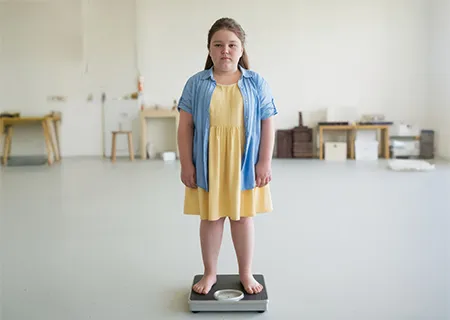


At Manisha “Mona” Dave, MD – Pediatric Gastroenterology, we provide specialized digestive care exclusively for children and young adults. Our practice is built on the principles of accessibility, accuracy and compassion, offering same-week diagnoses in most cases and ensuring every family feels supported from the first call to follow-up care. Led by Dr. Manisha “Mona” Dave, a double board-certified pediatric gastroenterologist and obesity medicine specialist, we combine advanced expertise with a warm, welcoming environment designed to put children at ease.
We diagnose and manage a wide range of gastrointestinal conditions, including:
Our services are designed to support your child’s long-term digestive and overall health:

Guidance on healthy eating habits and lifestyle choices to support your child’s digestive health and overall wellness.
LEARN MORE
Customized plans to address weight-related concerns, tailored to your child’s medical needs and growth goals.
LEARN MORE
Support for older teens moving from pediatric to adult GI care, ensuring a smooth and informed handover.
LEARN MORE
Manisha “Mona” Dave, MD is a double board-certified specialist in Pediatric Gastroenterology and Obesity Medicine. Practicing since 2004, she provides comprehensive, compassionate care tailored to each child’s needs. Known for her approachable style, Dr. Dave ensures parents feel heard and children feel comfortable, whether through a friendly conversation or a waiting room filled with toys to ease anxiety. Her hands-on approach and commitment to returning calls the same day set her apart from larger, less personal medical groups.
Trusted for expert pediatric GI care with compassion and convenience.
Over two decades of specialized pediatric GI expertise.
Care designed around your child’s individual needs.
Same-week diagnosis available in most cases.
If your child has persistent digestive issues such as abdominal pain, diarrhea, constipation, or vomiting, a pediatric GI specialist can help diagnose and treat the problem.
A pediatric gastroenterologist has additional training to diagnose and treat digestive issues in children, from newborns through adolescence.
Dr. Dave will review your child’s medical history, discuss symptoms, and may recommend diagnostic tests. She focuses on making both children and parents feel comfortable.
We accept most commercial insurance plans. Please contact our office for confirmation.